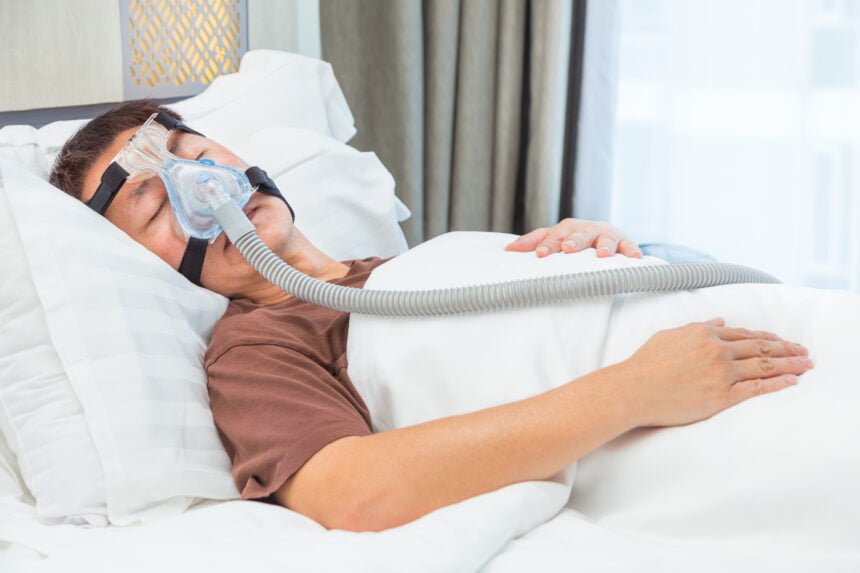Sleep apnea is a severe condition that you shouldn’t ignore. The most common symptoms you might experience include snoring loudly and waking up still feeling tired despite sleeping for seven to eight hours each night. Unrestful sleep is caused by the intermittent breathing disruptions experienced by a person suffering from this condition. You may notice that you wake up at night gasping for air, or your sleeping companion might observe that there are instances when you stop breathing while you’re in deep slumber.
Severe health consequences may be linked to sleep apnea. There’s a high possibility of developing metabolic issues, high blood pressure, acid reflux, and even heart problems. There are nonsurgical ways to help manage this sleeping condition, such as maintaining a healthy weight and lifestyle, altering sleeping positions, or using clunky sleeping apparatus.
Some opt to have surgical treatments for a more permanent remedy. Here are five standard surgical treatment options for people who suffer from sleep apnea:
1. Uvuloplasty
Uvuloplasty is a surgical procedure involving the uvula, the small dangling bell-like flesh at the end of your throat. This kind of surgery, which may include taking out a portion of the whole uvula, is ideal for those with moderate sleep apnea due to airflow obstructions in this part of the throat.
Uvuloplasty is a simple procedure that your doctor can perform in the clinic under local anesthesia. Upon diagnosis, your physician will look at the size and length of your uvula and determine if they are causing your sleep problems. If so, your doctor may suggest this type of operation. It will involve modification or excision of that hanging bell-like flesh causing your sleep apnea.
There’s no need to be anxious because this procedure is relatively safe, especially if you choose a doctor who specializes and has a long experience in this kind of procedure. Uvuloplasty surgery may take around 30 minutes, but your healing period may take about seven to ten days. After the surgery, you could feel pain, and you’ll be on a soft diet for several days. The discomfort is a small sacrifice to eliminate the many severe conditions, and possibly even death, associated with sleep apnea in adults.
2. Nasal Surgery
Sleep apnea sufferers who experience chronic night-time nasal congestion and even nasal obstructions during the day are likely candidates for nasal surgery. Doctors may require patients to go under the knife to remove whatever is causing a nasal blockage that’s already affecting a person’s ability to achieve restful sleep and maybe even perform day-to-day functions.
Nasal surgery might involve fixing obstruction problems in the nasal valve, septum, or turbinate. The most common nasal operations are turbinate reduction and septoplasty. The objective of nasal surgery is the same as that of uvuloplasty, and that’s to remove whatever is blocking the airflow so you’ll have the deep and sound sleep that your body needs.
3. Pillar Procedure
Another surgical approach for mild to moderate cases of sleep apnea is the pillar procedure. This minimally invasive method entails putting three polyester-rod implants in your soft palate. The primary objective of this surgical procedure is to ease snoring and relaxation of tissues in the throat area, which may be responsible for sleep disruptions.
Since it’s a minor operation, it may not be ideal for people with severe sleep apnea or patients who are overweight or obese. Additionally, it takes a few months to get the full effect of the implant, which may cause a bit of discomfort to some people especially when they are swallowing food.
4. Maxillomandibular Advancement Surgery
Maxillomandibular advancement is a jaw surgery suggested for sleep apnea sufferers with jaw abnormalities or a severe obstructive sleeping disorder. Since this procedure involves moving forward parts of the upper and lower jaw away from the rest of the facial bones, doctors consider it a major surgery. This operation aims to expand the area behind the soft palate and the tongue to minimize airflow obstruction during sleep.
As mentioned earlier, this is a major operation, so you’ll be under general anesthesia, and it may take about six hours to complete. Since this will require manipulating parts of your jaw, the recovery period may take weeks. Also, more risks and complications are associated with this operation, such as infection, bleeding, and weakening of the jawbone. Because this is a highly invasive treatment, many people who opt to undergo the procedure have severe sleep apnea and jaw abnormalities.
5. Tracheostomy
Tracheostomy may be the last resort for those with severe obstructive sleep apnea. This surgical treatment involves creating a neck opening to enable plastic or a metal tube insertion. The tube will help you breathe and bypass whatever is obstructing your air passage.
Tracheostomy isn’t typically used to treat sleep apnea since other treatment works well. Medical practitioners typically reserve tracheostomy for morbidly obese sleep apnea sufferers or patients that are extremely sick.
The Bottom Line
Sleep apnea is the abnormality in breathing while sleeping. Having repeated stops and starts of breathing while you were sleeping is a potentially risky condition if left untreated. If you suffer from this condition, visit a doctor to know if there are therapies or devices that can help your sleep apnea problem improve.
If in any case that non-invasive therapies and devices don’t work for you, you may consider these five surgical treatment options discussed in this article. Some minimally invasive procedures can be done in a doctor’s office, while others require a highly invasive operation.









